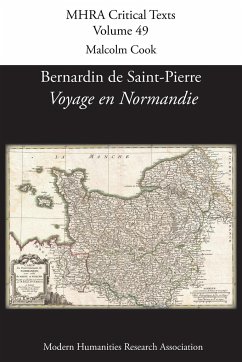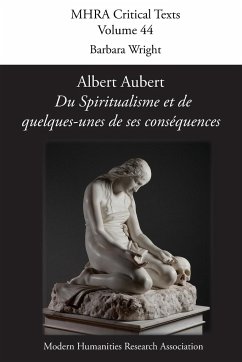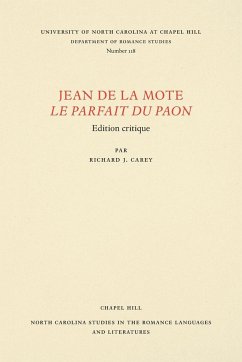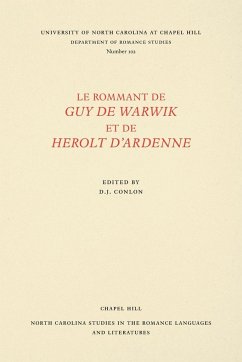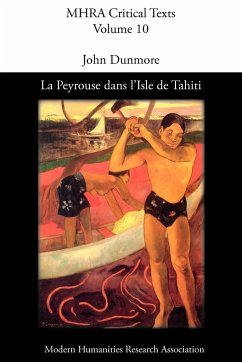
La Peyrouse Dans L'Isle de Tahiti, Ou Le Danger Des PR Somptions
Drame Politique
Herausgeber: Dunmore, J.
Versandkostenfrei!
Versandfertig in 1-2 Wochen
25,99 €
inkl. MwSt.

PAYBACK Punkte
13 °P sammeln!
This anonymous play was written and published in obviously very limited numbers, as it is very hard to find, and all indications are that it was not performed - the preface mentions "directors who would like to undertake its production". It is based on two well-known episodes in Pacific exploration : the voyage of Louis de Bougainville around the world, and his arrival in Tahiti very soon after Samuel Wallis' discovery of it, and the later voyage and disappearance of Jean-François de la Pérouse. Bougainville's stay in Tahiti, although brief, had important consequences for French and European...
This anonymous play was written and published in obviously very limited numbers, as it is very hard to find, and all indications are that it was not performed - the preface mentions "directors who would like to undertake its production". It is based on two well-known episodes in Pacific exploration : the voyage of Louis de Bougainville around the world, and his arrival in Tahiti very soon after Samuel Wallis' discovery of it, and the later voyage and disappearance of Jean-François de la Pérouse. Bougainville's stay in Tahiti, although brief, had important consequences for French and European philosophical thought, largely through the enthusiasm felt by some of those on board his ships, who saw in Tahiti an earthly paradise, the proof of Rousseau's theory, at least as interpreted by some, that man was inherently and naturally good, and only corrupted by civilisation and, in particular, by property ownership and class distinctions. Here indeed, lived man in his primitive but happy state, the living proof that had been sought for many years that the "Noble Savage" existed. This view was strengthened by the Tahitian, Ahu-toru, whom Bougainville took with him to France and introduced to Paris society, where he was warmly received. The other element in the play is the disappearance of La Pérouse's two ships, after a lengthy voyage of exploration and a final call at Botany Bay in Australia. He had left there in 1788 and had not been seen since. The government encouraged searches for him, organising a major expedition to look for him, that of D'Entrecasteaux, but it was unsuccessful. When this play was written, the mystery of the disappearance remained complete, if anything it was slipping from public interest. Nevertheless, it gave rise to several books and theatrical performances, such as Kotzebue's "La Peyrouse: Ein Schauspiel", John Fawcett's "Pérouse or the Desolate Island", "Fragmens du Dernier Voyage de Lapérouse", a poem by André Chénier, and a theatre-ballet in Naples. The call at Tahiti also produced two major works: Diderot's "Supplément au Voyage de Bougainville" and Giraudoux's "Supplément au Voyage de Cook", while the image of Tahiti and other Pacific islands became linked with utopian visions, in which one might even include Giraudoux's "Suzanne et la Pacifique". The aim of the book is to present this rare text to a wider public, accompanied by an introductory commentary outlining the background, as well as the political attitudes adopted by the author and the situation in France in the early 1800s, which probably made it hard for the play ever to get produced or the text to be made widely available. John Dunmore is Emeritus Professor of French at Massey University and is an authority on French exploration of the Pacific.







